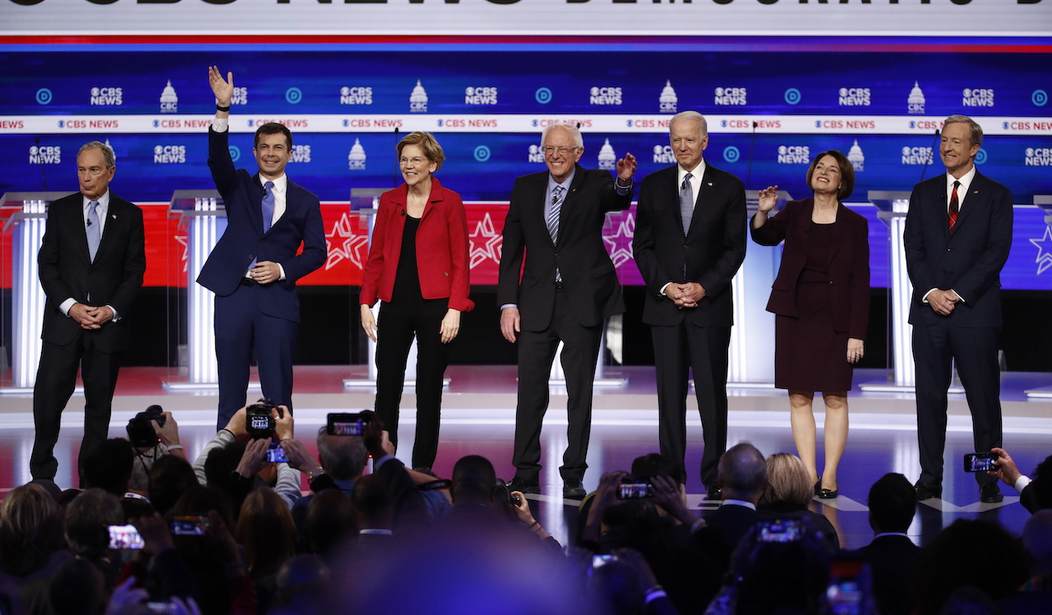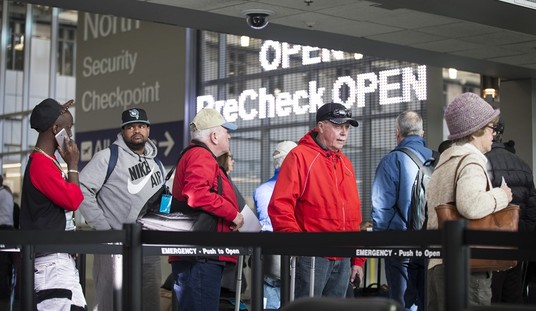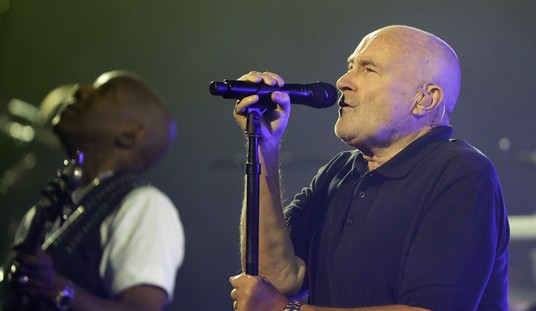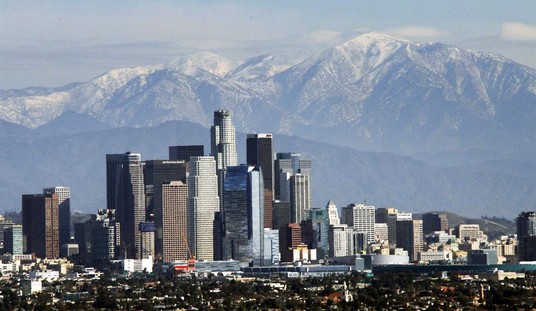Cultural Marxists that they all are, the Democrat Party has been captured by diversity and identity politics for years. Every issue, every candidate, every opponent is viewed through a prism of identity politics. The Democrats operate on a political spoils system that dates from “Boss” Tweed’s Tammany Hall days in New York City, which the Daley’s coopted in Chicago for decades. [Tweed and the Daley clan were Democrats, of course.] The spoils are allocated on the basis of political support provided and voting blocs delivered to Democrat politicians. And it’s why large US cities run for decades by Democrats are such disaster areas in the 21st century.
The Democrats’ Star Wars bar scene (alias their slate of presidential candidates) all appealed directly to identity politics and the individual blocs of voters within the Democrat coalition in their primary campaigns. Several traded on their own membership in one or more of those blocs, and all blamed the failures of their campaigns on various reasons, frequently including identity politics as the principal reason for their loss.
Before we identify the real reasons for their defeat, let us examine what reasons (excuses) have been given by some of the more prominent Democrat candidates who pulled the plug along the way because their campaigns didn’t catch on with Democrat voters. Amazingly, they essentially blamed other Democrats for their failures, as their own rank-and-file voters are the people who rejected them.
Beto O’Rourke and his staff blamed the media for torpedoing his campaign:
According to CNN’s Eric Bradner, O’Rourke’s own staff is treating O’Rourke’s failure the way Hillary Clinton treated hers: by failing to admit fault and blaming their campaign’s dramatic decline on everyone from the media to Donald Trump.
O’Rourke’s team is mad that their avant garde approach to campaigning wasn’t well received — that is, that audiences perceived O’Rourke as weird, overshare-y, and trying too hard rather than how the campaign thought stunts like a livestreamed tooth cleaning should play out.
What about Kamala Harris? She and her supporters have a litany of excuses, most prominently sexism and racism (of course):
Harris herself blamed billionaires, basically, while supporters and pundits expanded the blame to also include sexism, racism, biased media coverage, and other issues beyond the candidate or her campaign’s control.
Cory Booker blames lack of money (those white billionaires didn’t come through for him) and an inability to resonate with minority voters (a class problem, not a race problem):
[I]t’s money that Booker himself cited as the problem, along with exclusion from the debates.
But ultimately both Harris and Booker succumbed to the common problem — absolutely crippling in South Carolina and (presumably) other important states with large minority populations — of having little appeal to their fellow African-Americans.
Amy Klobuchar and her fans blame gender – and her inability to catch on with minority voters (the legacy media always frame Democrat politics in terms of identity politics):
Gender also likely played a substantial role in Klobuchar’s failure to catch on. [In addition,] Klobuchar’s campaign lacked support among black and Latino Democrats.
Then there is Pete Buttigieg, who was the first Millennial who ran for president, who happens to be a homosexual. His supporters blame homophobia and religious bigotry, among other reasons, for his failure to gain any real momentum after winning the Iowa caucuses.
A large problem for Buttigieg was his continual struggle to gain the support of voters of color — a fact not helped by ongoing concerns about his firing of South Bend’s first black police chief, as well as Buttigieg’s handling of the fatal shooting of an unarmed black man by South Bend police last year.
He was also forced to endure an increasing amount of homophobia and bigotry as his campaign progressed, whether it was Republican politicians calling him “queer”, Christians saying he is “deserving of death,” an Iowa voter asking to retract her vote for him after learning Buttigieg is gay, or a number of recent comments questioning his “masculinity” in comparison to Donald Trump.
What about Fauxcahontas? Her rabid feminist supporters are blaming her loss on sexism, of course:
While analysts scrambled to understand why Warren lost after once being a frontrunner, and what it means for the rest of the election, feminists cried “sexism.”
Jessica Valenti, who co-founded “Feministing,” said she’s in “a pit of despair” over Warren’s loss. She blamed it on sexism. Her evidence for this serious accusation was only that she’s “been around too long.”
Mike Bloomberg is a horse of a different color. He had the money but not the pizzazz, and his ego finally caught up with him. He is only one whose loss has been attributed to the inverse of identity politics in that his demolishing by rabid feminist Fauxcahontas in the Nevada debate sealed his doom.
It certainly wasn’t enough to project him past his stony face, his ironbound certainty that he is always right and his gargantuan ego, all distilled in that stunning moment during his first debate when the mask slipped and he blurted that he had bought the current Democratic majority in the House.
And now the Democrats are down to two main candidates who are white septuagenarians (Tulsi Gabbard is a throw-away candidate). They don’t fit the Democrats’ obsession with identity politics.
Before we get to assigning the correct reasons why the Democrat candidates all flamed out, we should recall that the “Queen of Blame” is none other than Hillary Clinton, who has spent the last four years ascribing her loss in 2016 to just about every reason under the sun, including sexism, racism, third parties, Bernie bros, and the moon being in the wrong phase on Election Day. She has still not come to grips with the fact that she was simply a bad candidate who could not connect with average voters. She expected a coronation and got the back of the hand from the American people instead. But her inability to examine her personal accountability for her loss is not a bug; it’s a feature – and it’s a recurring symptom among Democrats.
The real reasons why the above-listed Democrats lost have to do with their inability to connect with a broad base of Democrat primary voters. All of them received positive media support because that’s what the legacy media do (enable Democrats). In fact, some of the candidates, like Beto, were exclusively created by the media. All of them failed to create any excitement in their respective candidacies and were unable to build a broad coalition within their own party. They were all shades of gray, with the differences in their policy positions being virtually indistinguishable throughout the debates. And all of them are socialists to the bone.
Here are the specific reasons for the failed candidacies of each of the above:
1. Beto O’Rourke. Beto’s use of social media turned off normal people, and he was a fish out of water with his rabidly anti-gun public statements in his home state of Texas. Democrats don’t generally run with failed candidates, and Beto lost his Senate race in 2018 to the incumbent, Ted Cruz (R-TX).
2. Kamala Harris. Despite many media puff pieces, she had no real unifying message, energy, or appeal and couldn’t even draw in minority voter support. She couldn’t differentiate herself from the field or connect with average voters.
3. Cory Booker. He was yet another lackluster candidate, despite the enabling by the legacy media. He had no real message and no ability to broaden his support beyond his home state. He didn’t give a reason for primary voters to vote for him and had little appeal among minorities who viewed him as a member of the privileged political class.
4. Amy Klobuchar. She was the candidate from Cargill, as discussed here, and had virtually zero appeal outside her home state of Minnesota although she tried to appeal to feminists and moderates in the party without much success. Did they rightly suspect that she was enthralled to her donor base and disingenuous? She had no energy and no real message other than trying to position herself as the “moderate alternative.” She was simply a bad candidate.
5. Pete Buttigieg. He tried to run as a moderate alternative, too, but that was a lie, as discussed here. He tried to mask his radicalism through slick platitudes during the debates but was too clever by half, as that removed the passion and emotion from his shtick. The result was he had no ability to develop a broad coalition even though that was what he claimed he was doing through his campaign. In reality, he fuzzed over his lack of experience and was ultimately a bad candidate, too.
6. Elizabeth Warren. She did the identity politics dance and leveraged her wampum from her lobbyist backers as best she could, but her ridiculous pandering to all Democrat identity groups and the hypocrisy associated with her false life-story were transparent – even to Democrat primary voters. Her presentation was strident and reminded voters of the caricature of the “bad mother-in-law” as much as anything. She had no coalition beyond rabid feminists and a few other assorted radicals.
7. Mike Bloomberg. Despite his enormous campaign expenditures that approached $700 million (!), Bloomberg demonstrated that he was just not likable. Money doesn’t buy charisma, and his money would have been better spent as noted here. He was simply a bad candidate who couldn’t connect with average voters and, in the end, finally realized he had no shot to build a winning coalition.
In summary, the Democrats place great value on identity politics and the siren song that is socialism. All of their failed presidential candidates, less Bloomberg, played on both of those “values.” None of them exhibited the charisma, energy, vision, and appeal necessary to actually build a viable coalition, and their various excuses on why each lost ring hollow. They were simply baaaaad candidates – each for slightly different reasons, but nevertheless bad.
The end.














Join the conversation as a VIP Member